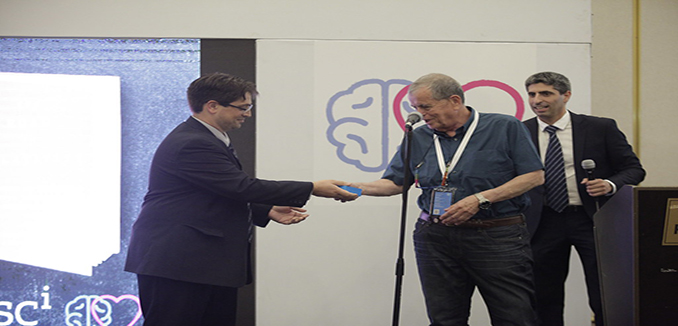Scientists cannot yet make a living copy of your brain. But researchers at Israel’s Ben-Gurion University and Cedars-Sinai Medical Center in Los Angeles have done something almost as astounding: on a chip, they’ve duplicated patients’ blood-brain barrier (BBB) using the individuals’ own cells. The BBB-Chip functions as it would in the patient.
Their achievement — detailed in a study published in the journal Cell Stem Cell — provides a new way to study brain disorders and, potentially, predict which drugs will work best for each patient.
The BBB acts as a gatekeeper by blocking toxins and other foreign substances in the bloodstream from entering the brain. However, the BBB also can prevent potentially therapeutic drugs from reaching the brain.
A team co-chaired by Gad Vatine of BGU’s Regenerative Medicine and Stem Cell Research Center and Clive N. Svendsen of Cedars-Sinai’s Board of Governors Regenerative Medicine Institute collected blood cells from individuals and genetically manipulated into stem cells (induced pluripotent stem cells), which they used to make the neurons, blood-vessel cells and support cells of the BBB.
They placed these various types of cells inside microfluidic chips that mimic the environment in which cells interact with each other and with blood. The living cells formed functioning BBBs that blocked entry of certain drugs.
Significantly, when the BBB-Chip was derived from cells of patients with Allan-Herndon-Dudley syndrome or Huntington disease, the barrier malfunctioned in the same way that it does in patients with these diseases.
Although scientists have created blood-brain barriers outside the body before, the investigators said they believe this is the first time such a structure has been created from induced pluripotent stem cells that were derived from a patient, matched the patient’s DNA and displayed a characteristic defect of the patient’s disease.
“This approach allows the prediction of the best-suited brain drug in a personalized manner,” says Vatine.
“This is of particular importance for neurological diseases like epilepsy or schizophrenia, in which several FDA-approved drugs are available, but current treatment selections are largely based on trial and error. We’re aiming to meet the unique needs of each individual patient.”
The project was supported by the Israel Science Foundation, the California Institute for Regenerative Medicine and the Sherman Family Foundation.




